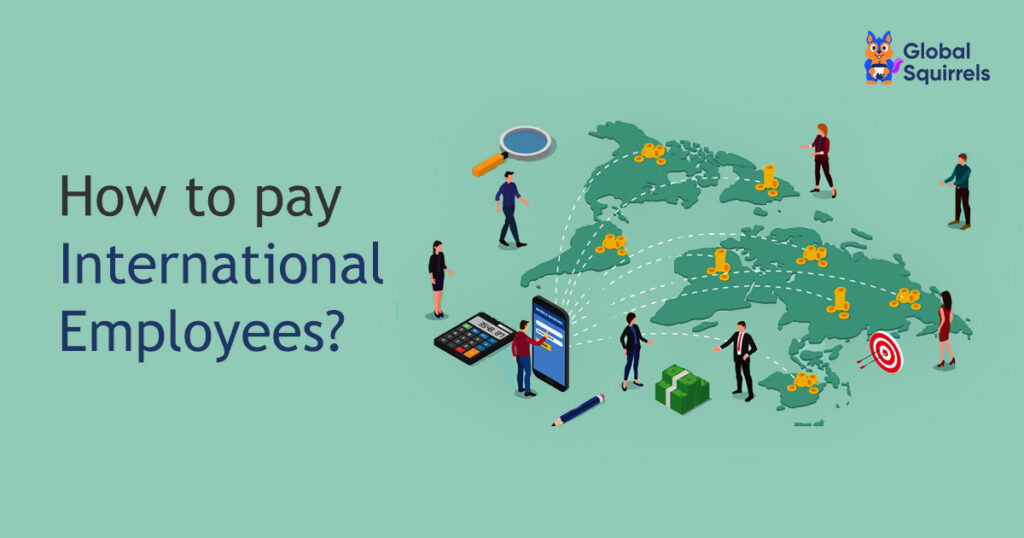How to Pay International Employees – Complete Guide

As we delve further into the 21st century, the world of work is becoming increasingly globalized. With increased globalization, the challenge of how to pay international employees also becomes increasingly relevant. Whether you’re a small startup looking to hire talent from overseas or a well-established corporation with offices around the world, you need to understand the intricacies of international payroll services.
This guide aims to help you navigate the complexities of the global payroll landscape and learn how to pay international employees in an efficient, compliant, and cost-effective manner.
Understanding legal framework and employment laws
One of the first steps in knowing how to pay international employees is understanding the legal framework and employment laws of the country your employees reside in. Each country has unique laws regarding employment, which cover areas like minimum wage, overtime pay, benefits, taxes, and record-keeping requirements. Ignorance or misunderstanding of these laws can lead to serious consequences, including legal action and damage to your company’s reputation.
Additionally, some countries require businesses to set up a legal entity before they can legally employ and pay workers. In such cases, businesses might need to consider using an employer of record service, which can act as a legal entity on their behalf, simplifying the process of hiring and paying employees overseas.
Methods for paying international employees
When it comes to implementing a global payroll, there are various methods to pay international employees, each with their own advantages and disadvantages.
Bank transfers
One of the most traditional methods is the international bank transfer. This method is fairly straightforward, but it can incur significant transaction fees and often involves complicated processes, especially for smaller businesses.
Pros:
- Well-established and trusted
- Good for large transactions
Cons:
- Incur high fees
- Time-consuming due to complex bank processes
Digital payment platforms
Digital payment platforms like PayPal, TransferWise, and Payoneer offer another solution. These platforms provide a convenient way to pay international employees, often with lower fees than traditional banks.
Pros:
- Convenient and user-friendly
- Lower transaction fees
Cons:
- Not all countries have access to these platforms
- Exchange rates can fluctuate
Global payroll partners
Global payroll partners or international payroll service providers take the stress out of managing global payroll. They ensure that your company complies with local employment laws, and handle all aspects of payroll, including wage calculations, tax withholdings, and payments.
Pros:
- Ensures compliance with local laws
- Simplifies the payroll process
- Can handle currency conversion and tax withholdings
Cons:
- Can be expensive for small businesses
- Less control over payroll details
To choose the best method to pay your international employees, consider the size of your business, the countries where your employees reside, the nature of your work, and the resources available to manage payroll.
Now, let’s dive deeper into currency conversion, important considerations when paying international employees, and the benefits of using an EOR as a global payroll solution.
Understanding currency conversion
An essential aspect of figuring out how to pay international employees involves understanding currency conversion. Currency exchange rates fluctuate daily due to market conditions, which can directly impact the amount your international employees receive.
Different payment methods handle currency conversion differently. Traditional banks often offer less favorable exchange rates and charge a fee for conversion, while digital payment platforms often use the real-time mid-market rate. On the other hand, global payroll services can manage this process for you, ensuring accurate and fair conversions, and often at better rates than banks.
Things to consider when paying international employees
Several key considerations need attention when you pay international employees. Ensuring timely payments is crucial as delays can impact employee morale and productivity. Keep in mind that bank holidays and time zones can differ greatly from your home country, which could potentially affect payment schedules.
Compliance with tax laws is another significant factor. Each country has different tax regulations, and failure to adhere to these can lead to hefty penalties and legal issues. An international payroll service provider can help ensure compliance by withholding the correct amount of tax and providing necessary tax documentation.
Finally, communication plays a vital role. Keep your employees informed about the payment process, frequency, and any changes that may occur. Clear communication helps build trust and prevent potential misunderstandings.
Streamlining international payments with an EOR
An Employer of Record (EOR) is a third-party service provider that serves as the official employer of your overseas staff for tax, immigration, and labor law purposes. This means that while you retain the day-to-day control over your employees, the EOR handles all the administrative, legal, and financial aspects of employment. This includes payroll management, which involves ensuring timely and compliant payments to your international employees.
RELATED READ: Employer of Record Benefits
An EOR platform can considerably simplify the process of paying international employees by taking over a range of crucial tasks
- Legal Compliance
- Currency Conversion
- Timely Payments
- Tax and Benefits Management
Conclusion
Learning how to pay international employees is a crucial part of managing a global workforce. While it can seem herculean, becoming familiar with local employment laws and understanding different payment methods can make the task more manageable. Additionally, having a grasp of currency conversion and considering key aspects of the payment process can further simplify the process. An EOR, or global payroll partner, can help streamline the process, providing a comprehensive solution that ensures both compliance and simplicity.
If you’re looking for more information about how an EOR can simplify your global payroll process, we are here to help. Reach out to us for assistance and advice on managing your international payroll efficiently and effectively. Navigating the global payroll landscape can be complex, but you don’t have to do it alone. Let us help you succeed in your global business endeavors.
